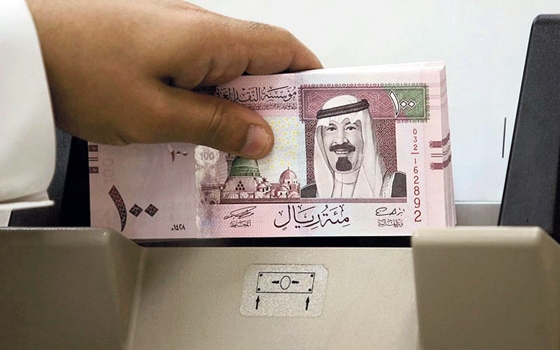Saudi Arabia is poised to post a budget surplus of SR266 billion ($71 billion) in the current year (2013), and it will continue to have surplus budgets in the years to come so long as oil price remains above $100 per barrel, a financial expert has said.
In an interview to Al-Eqtisadayah, Khalid Jamal, the CEO of EFG-Hermes (Saudi Arabia), said oil prices are expected to hover around $110 per barrel till the end of this year.
But he acknowledged that some negative impact was possible post-2013 if the US reviewed its current quantitative easing policy.
He also ruled out major risks to the Gulf region from the shale oil and gas boom in the US, at least for the next 10-15 years.
The Saudi stock exchange (Tadawul) is the most attractive bourse in the region due to its huge liquidity, which accounts for 70 percent of the GCC market, besides sector diversification, depth and strong basics.
On the opening of the Saudi market to foreign investors, the EFG-Hermes chief said the move would facilitate the entry of well-experienced investment funds. This will help end fluctuations in the performance of some shares as a result of lack of experience among some individual dealers, he said.
He said the entry of foreign investors would also provide more stability to the market, increase liquidity and diversify investor base — whether local or regional, individuals or corporate.
He said the decision to open up the Saudi stock market for foreigners was based on a variety of factors including the position of global economy and the market preparedness in terms of rules and regulations related to foreign investments.
He said the Saudi stock market could derive additional benefits by tapping foreign expertise.
On fears over the possible escape of “hot money” in the event of any crisis, as experienced earlier in some regional markets, he said Saudi market has a solid regulatory and organizational structure as well as qualified cadres who could draw up rules to regulate the exit and entry of investors.
The EFG-Hermes chief predicted that the Saudi stock market would retain gains it made since the beginning of the year and maintain its present levels till the year end.
The Tadawul index has reportedly grown by 23 percent since the beginning of the year and is currently over 8,300 points.
He said banking and petrochemical sectors are the most attractive in the market for having strong future potential, and are expected to witness substantial growth in the medium term.
Despite the fact the oil remains the major growth engine for the Saudi economy, the Kingdom could, however, minimize its dependence on oil and step up its shift to a multi-sector based economy which is an enormous success, he said.
He said the Saudi sukuk trade was progressing in tandem with advanced markets.
Saudi Arabia is also the biggest investor in sukuks in Malaysia, which captures the biggest sukuk issuances in the world, he said.
On EFG-Hermes’ presence in the Saudi market, Jamal said it dates back to 2004 when they worked as financial advisers in collaboration with Goldman Sachs when the second telecom license was awarded to Mobily.
In general, they act as financial advisers in merger and acquisition deals.
He said EFG-Hermes plans to play an active role in the initial public offerings (IPOs) and help investors expand their activities inside and outside the Kingdom.
“We also plan to expand in the area of fund asset management in the Kingdom,” he said.
Arab News/ Al-Eqtisadiah
2 December























































